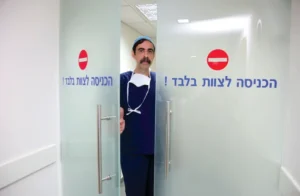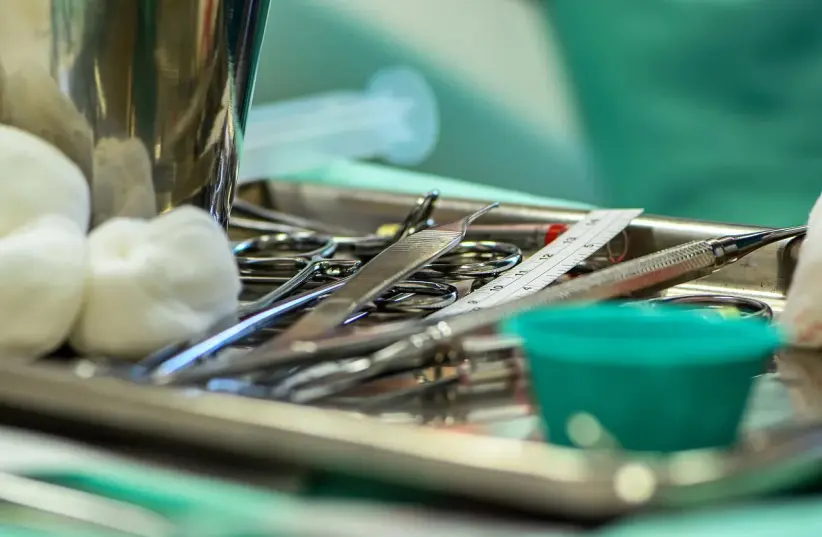You went to the doctor, received a diagnosis, and your level of anxiety and uncertainty shot up. Now what?

Surgery is quite stressful, but being as informed as possible will reduce your anxiety.
Dr. Guy Lahat, director of the surgical division at Ichilov, was a guest on the “Specialist Clinic” podcast to explain what questions should be asked prior to a surgical procedure, and what should be expected from the surgery.
“It’s a complete shock, they don’t know what to as.”
Dr. Guy Lahat
“The journey of a patient who arrives for surgery starts with a diagnosis,” he said. “After being diagnosed a patient has to ask ‘who should I go to’, what doctors should be seen before making a decision about surgery, and the question of questions such as ‘which surgeon is capable’ or ‘which hospital is best?'”
Lahat explained that in most public hospitals, the surgeon can be selected.
“In Ichilov, in the surgical division, 95% of the patients referred for surgery by a senior surgeon are operated on by that surgeon,” said Lahat.
Prof. Lahat generally treats people with esophageal or stomach cancer.

What should you ask?
“It’s a complete shock, they don’t know what to ask,” said Lahat. Yet they need to stop, see which options are available and try to understand more about the disease they have.
He added that it’s worth asking questions such as: What disease do I have, do I need more tests, should I see a surgeon or an oncologist.
“But people don’t ask, they go home and feel hopeless,” said Lahat.
The best way to handle a diagnosis is to learn what exactly the disease is and how each part of the treatment process might lead to remission.
How to choose a surgeon
Lahat emphasized that many patients don’t have the right information they need to choose a surgeon.
Even after a thorough examination, “for each type of surgery you’ll receive three or four names of surgeons, and for common cancers there might be 10 names of leading surgeons in the field. Very few patients know how to ask the right questions to the first surgeon they see. They say: ‘Excuse me, how many of these surgeries did you do this year?’ You can’t control what any surgeon will tell you but I assume that most surgeons are honest people and will tell the patient how many of a particular surgery they did within the last year.”
He added that one could also ask if the surgeon had any complications and if so which, and one could ask to speak to a person who had this same procedure performed by this surgeon.
Bottom line, once a surgeon is chosen, a relationship based on trust is formed.
Lahat emphasized that “Without trust between the patient and the surgeon, it can’t happen. I think patients should choose the surgeon through a set of questions and through an interaction created during the first appointment. If this doesn’t happen it’s very important, especially in complex surgeries, to go for a second opinion. I have no problem if my patient goes for a second opinion, and I also give many second opinions. I think the patient benefits from hearing another opinion and meeting another surgeon. Patients have the right to choose who will operate on them.”

